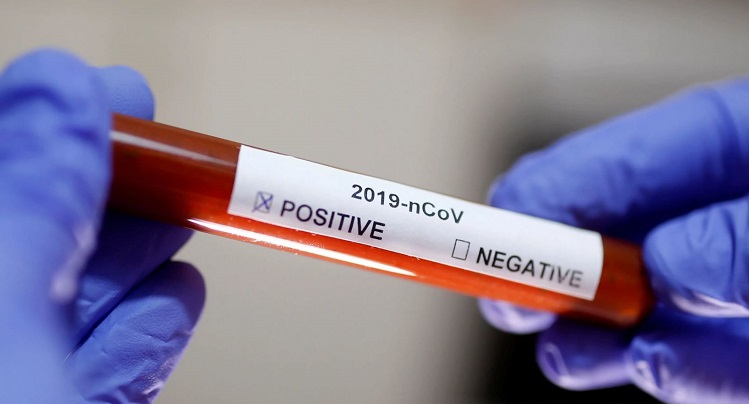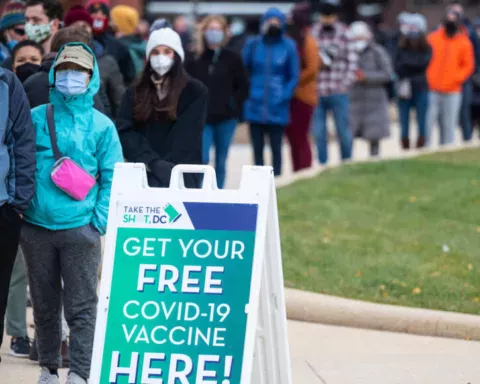Basel, 16 March 2021- Roche (SIX: RO, ROG; OTCQX: RHHBY) today announced the launch of the cobas® SARS-CoV-2 Variant Set 1 Test to detect and differentiate mutations found in variants that originated in the UK (B.1.1.7), South Africa (B.1.351), and Brazil (P.1). This research use only laboratory test can be used to help scientists track mutation prevalence and to assess any potential impact on diagnostics, vaccines and therapeutics, providing crucial insight for healthcare systems in making appropriate measures to combat COVID-19.
Variants of B.1.1.7, B.1.351 and P.1 lineage gained prominence in late 2020, with each carrying a number of genomic mutations. Among them, mutations E484K, N501Y and del 69-70 are located in the spike protein, the region that enables the virus to attach to and enter the human cell. Studies have suggested that these mutations may be linked to increased disease transmissibility, and possibly decreased therapeutic and vaccine efficacy.1-4
“Viruses naturally evolve over time. While most mutations do not have a clinical impact, some variants need to be tracked carefully as they seem to spread more easily and quickly,” said Thomas Schinecker, CEO Roche Diagnostics. “Continued surveillance is essential for public health. Our latest solution provides laboratories a fast and efficient way to investigate these variants found in infected individuals and the potential impact on existing therapies, vaccines and tests.”
The cobas SARS-CoV-2 Variant Set 1 Test runs on the widely available, high-volume cobas® 6800/8800 Systems. Pre-optimised assay design, ready-to-use test cassettes and predefined software parameters enable laboratories to reduce testing complexity and increase walkaway time.
It is important to note that Roche has confirmed its existing diagnostic tests to detect SARS-CoV-2 are not affected by known mutations and remain accurate and effective in detecting active infections. The company is conducting assessments on a regular basis and will continue to monitor as new variants arise.
About SARS-CoV-2 Variants B.1.1.7, B.1.351 and P.1
First reported in the UK in December 2020, B.1.1.7 variant has quickly become the dominant circulating variant and has since been found in countries worldwide.1 B.1.1.7 carries a large number of mutations, eight of which are accumulated in the spike region. Preliminary studies have suggested that two such spike mutations, N501Y and del 69-70, are associated with increased transmissibility of the disease.2,3 Another variant, B.1.351, which arose independently from B.1.1.7, was reported in South Africa in December 2020. In addition to having mutation N501Y, B.1.351 carries another spike mutation E484K, which appears to evade the body’s immune response, possibly diminishing vaccine efficacy.4 Variant P.1, a close relative to B.1.351, has several defining mutations including N501Y and E484K in the spike region. P.1 has been circulating in the Amazon region as of late 2020 and is thought to evade immunity generated after infection by other variants.5
About cobas SARS-CoV-2 Variant Set 1 Test
cobas SARS-CoV-2 Variant Set 1 Nucleic Acid test for use with the cobas 6800/8800 Systems is an automated, multiplex, real-time reverse transcription polymerase chain reaction (RT-PCR) assay for the rapid in vitro qualitative detection and discrimination of select SARS-CoV-2 mutations E484K, N501Y and del 69-70. The test contains the respective primers and probes provided in the ready-made 384-test cassette. Automated data management is performed by the cobas 6800/8800 software, which assigns test results for all tests. Results can be reviewed directly on the system screen, and printed as a report. Roche is committed to providing additional variant tests as needed based on regular assessments of the infectious disease landscape.
About cobas 6800/8800 Systems
When every moment matters, the fully automated cobas 6800/8800 Systems offer the fastest time to results with the highest throughput and the longest walk-away time available among automated molecular platforms. With proven performance, absolute automation and unmatched flexibility delivering unparalleled throughput 24/7— cobas 6800/8800 Systems are designed to ensure a lab’s long-term sustainability and success now, more than ever. Learn more now: www.cobas68008800.com.
About Roche’s response to the COVID-19 pandemic
As a leading healthcare company we are doing all we can to support countries in minimising the impact of COVID-19. We have developed a growing number of diagnostic solutions that help to detect and diagnose the infection in patients, as well as providing digital support to healthcare systems, and we continue to identify, develop and support potential therapies which can play a role in treating the disease.
We understand the impact of COVID-19 goes beyond those who contract it, which is why we are working with healthcare providers, laboratories, authorities and organisations to help make sure that patients continue to receive the tests, treatment and care they need during these challenging times. As we learn from the pandemic, we are partnering with governments and others to make healthcare stronger and more sustainable in the future.
Our diagnostics solutions:
Reliable, high-quality testing is essential to help healthcare systems overcome this pandemic. Our portfolio includes:
- a high-volume molecular test to detect SARS-CoV-2, the virus that causes COVID-19, (FDA Emergency Use Authorisation (EUA) and available in countries accepting the CE Mark)
- a SARS-CoV-2 laboratory-based antibody test, aimed at detecting the presence of antibodies in the blood targeting the nucleocapsid (FDA EUA and CE Mark)
- an IL-6 test to assist in identifying severe inflammatory response in patients with confirmed COVID-19 (FDA EUA and CE Mark)
- Roche v-TAC, which could help simplify the screening, diagnosis and monitoring of patients with respiratory compromise in the current COVID-19 pandemic
- a SARS-CoV-2 rapid antibody test to help determine at the point of care whether a person has been exposed to the virus (CE Mark)
- a rapid antigen test to support in the detection of SARS-CoV-2 at the point of care within 15 minutes (CE Mark)
- a high-volume molecular test to simultaneously detect and differentiate between SARS-CoV-2 and influenza A/B, as the symptoms are similar for both (FDA EUA and CE Mark)
- a second SARS-CoV-2 antibody test, aimed at measuring the spike protein to support vaccination development and complement our existing portfolio
- a point-of-care molecular PCR test that simultaneously detects and differentiates between SARS-CoV-2 and influenza A/B infections to support urgent triage and diagnosis (FDA EUA and CE Mark)
Our research into therapies
Roche is committed to improving the treatment of COVID-19. We are actively involved in understanding the potential of our existing portfolio and are exploring the potential of our investigational molecules.
In August we signed a collaboration agreement with Regeneron on developing and manufacturing and significantly increasing global supply of an investigational antibody combination for COVID-19 if it proves safe and effective in clinical trials and regulatory approvals are granted. We are also partnering with Atea to jointly develop AT-527, an orally administered direct-acting antiviral (DAA) currently in Phase 2 clinical trials. If approved, Atea will distribute AT-527 in the United States and Roche will be responsible for global manufacturing and distribution outside the United States.
At the beginning of the pandemic, on 19 March, we announced the initiation of COVACTA – a global Phase III randomised, double-blind, placebo-controlled clinical trial to evaluate the safety and efficacy of intravenous Actemra©/RoActemra© (tocilizumab) plus standard of care in hospitalised adult patients with severe COVID-19 pneumonia compared to placebo plus standard of care. On 29 July we announced that COVACTA did not meet its primary endpoint of improved clinical status in patients with COVID-19 associated pneumonia or the key secondary endpoint of reduced mortality.
Separately, we have studied Actemra©/RoActemra© in the EMPACTA study in COVID-19 associated hospitalised pneumonia in patients that are often underrepresented in clinical trials. On 18 September we announced that the phase III EMPACTA study showed Actemra/RoActemra plus standard of care reduced the likelihood of progression to mechanical ventilation or death in hospitalised patients with COVID-19 associated pneumonia compared to placebo plus standard of care. However, there was no statistical difference in mortality between patients who received Actemra/RoActemra or placebo.
Actemra©/RoActemra© is also being studied in combination with the investigational antiviral remdesivir in hospitalised patients with severe COVID-19 pneumonia in the REMDACTA trial in partnership with Gilead, announced 28 May. Actemra©/RoActemra© is not approved by any health authority for use in COVID-19 pneumonia. Roche has further initiated an internal early research programme focused on the development of medicines for COVID-19 and is engaged in multiple research collaborations.
In these exceptional times, Roche stands together with governments, healthcare providers and all those working to overcome the pandemic.






